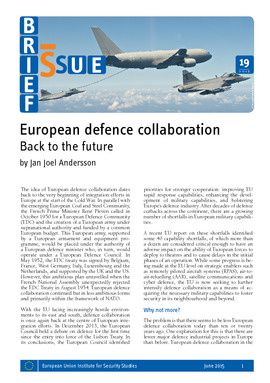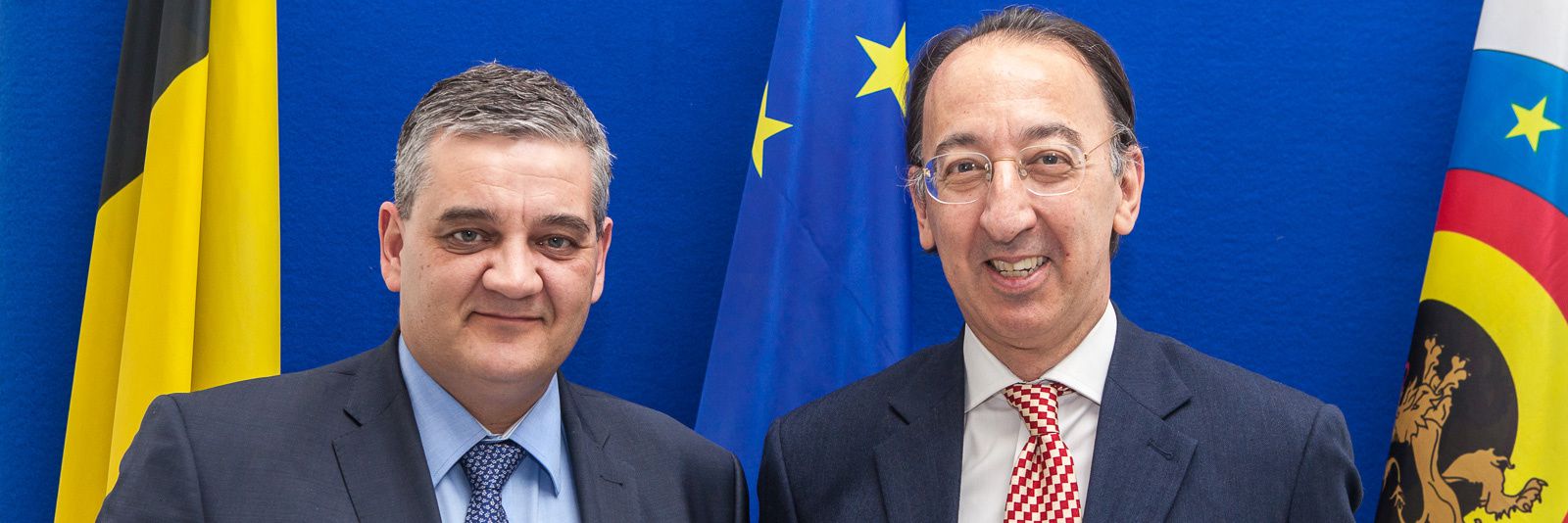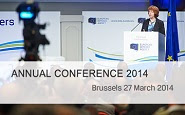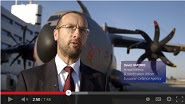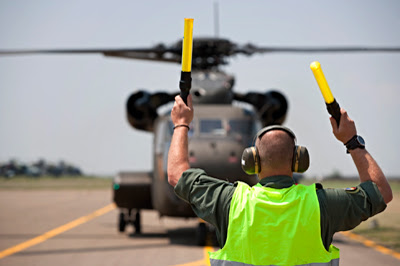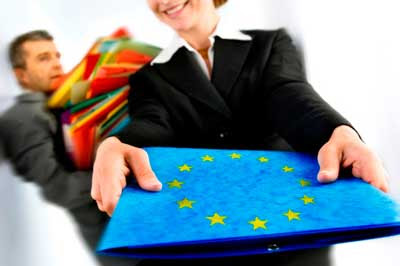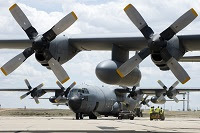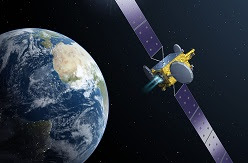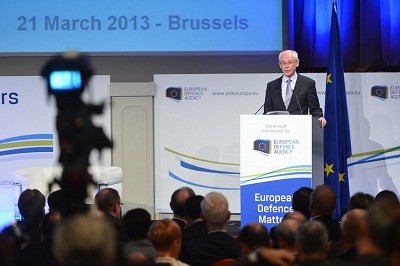Brussels - 15 May, 2014 European Defence Agency
The European Council meeting in December 2013 provided a clear set of tasks for the EDA, with four areas of capability development identified as being particularly urgent. Peter Round, the EDA’s Capability Director, explains what this means for the Agency.
Air-to-air refuelling (AAR), remotely piloted aircraft systems (RPAS), governmental satellite communications and cyber defence are the key issues which the European Council has identified as areas in which the EDA should work to fill in immediate capability gaps.
“Although these four tasks certainly occupy pole position in the Directorate’s thinking, they are not our only concerns. We need to examine these priorities in the context of our work as a whole. However, each of these four areas is on the priority list for a reason and they are worth examining in some detail,” said Round.

There can be no doubt there is a fundamental shortfall in European AAR capability. In operations over Libya, over 80% of all AAR missions were flown by US aircraft. One of the first challenges to be overcome, according to Round, is that the requirement for AAR is very different in peacetime to that in time of crisis – and that leads to all sorts of priority setting issues. “The obvious issue is that more capacity is required, but the background is complex and varies from nation to nation, so some strategic thinking has been necessary,” he said.
The first issue, therefore, has been to determine the best method of exploiting the existing fleet and satisfying short term demand. One solution has been to improve the efficiency of allocating various national assets and – in a move that mirrors some of the initiatives undertaken for the European Air Transport Command (EATC) – to improve and accelerate the process for gaining diplomatic clearance for AAR missions over foreign territories.
A parallel and potentially difficult issue to resolve is the two types of AAR technologies available – “booms” and “reels/hoses and drogues”. Not all aircraft can accept fuel from both systems. The Royal Air Force, for example, currently has no indigenous refuelling capacity for the Rivet Joint signals intelligence platforms it is currently bringing into service and must depend on other nations assets if AAR is required.
Increased efficiency also comes from assuring adequate (and regular) training and the EDA is organising a number of what Round describes as “practical flying events,” the most recent of which took place at Decimomannu in Sardinia in late 2013. The next such event will focus on the use of Italian Boeing B767 tankers later this year.
Apart from improving the efficiency of current assets, the EDA is also working on initiatives including one looking at exploiting excess national capacity (with the UK’s Voyager fleet being a prime example. A key piece of work is support to a Dutch and Norwegian led initiative to acquire a fleet of Multi Role Tanker Transport (MRTT) aircraft which will make a significant contribution to European Capability through Pooling and Sharing, this aircraft will not only be a tanker but a very significant air transport asset as well.

The issues in the further evolution of RPAS are no less complex, but are significantly different. With the overwhelming majority of current requirements coming from the military – most of which, as Round said, have a provenance in the world of Urgent Operational Requirements – there is a tendency to forget that RPAS are most effective in an environment in which air supremacy is assured. Extending the RPAS capability from the military to the civil environment – in which the size of the market will be infinitely larger in the not-too-distant future – requires that attention be paid to a host of issues surrounding safety and public perception. “We absolutely have got to make RPAS acceptable ,” said Round.
The issue is one of the Agency’s Pioneer Projects, and aims at harnessing synergies in both military and civil domains, maximising dual-use technologies and overcoming the limitations of greater RPAS-use imposed by the lack of a harmonised framework allowing them to operate in civil airspace. Some of the problems associated with overcoming these limitations centre on the regulatory and certification domains.
In an important milestone, the MIDCAS (Midair Collision Avoidance System) project showed the capability of RPAS to operate safely beyond line of sight in a flight test in April 2013. “MIDCAS showed we are progressing towards ‘sense and avoid ;’ we have flown the airplane – it’s not pie in the sky,” said Round. He said “it has taken a long time – and great expense – to get to this stage but we have now reached the stepping-off point for the next generation: we’ve done it once, now we need to stop talking, and deliver a usable capability.” he said.
The DeSIRE programme (Demonstration of Satellites enabling the insertion of RPAS in Europe) has been a joint EDA/European Space Agency (ESA) initiative since 2010 and in spring 2013 achieved a significant progress during flight tests in Spain. Building on the capabilities the programme demonstrated, a joint investment programme, which was launched in 2012, will focus attention on solving the individual components of the issue – including sense and avoid, air traffic management interfaces and decision architecture - from this year. “There is cooperation in a host of disciplines – technological, training and maintenance among them” , said Round.
Most importantly we now have a Medium Altitude Long Endurance (MALE) community of users established through which we will continue work to move from our current Common Staff Requirement towards a Common Staff Target to define the next generation of RPAS for Europe. “This is a very exciting development and clearly demonstrates the support within Europe for this type of Capability” said Round.

A similar approach is being applied to the EDA’s work in the cyber domain, where the Agency provides “the defence element of a cross-Brussels cyber effort,” said Round. It is a domain that is sensitive, relatively new and not yet fully understood, though there have been no end of discussions trying to scope and size the credibility of the threat and therefore the appropriate nature of the response. “There is a lot of knowledge already in place, so the questions becomes where can we add value,” said Round.
The issue in cyber seems to revolve more around people than technology. Some observers estimate there is a requirement for fully trained cyber specialists is a hundred times the number in existence. This may seem like a scaremongering statistic – but it is difficult to refute given current knowledge available in the public domain. As a result of the recognition of this and the picture revealed by the Agency stocktaking study, an unclassified version of which was presented in May last year, it is readily apparent that while there are strengths across Europe in leadership, personnel and interoperability work has to be done on doctrine, organisation and training.
So the EDA has conducted a detailed Training Needs Analysis and currently works on building a comprehensive cyber defence curriculum. It is working closely with the US-led Multinational Capability Development Campaign to develop cyber defence operational planning and deploy situational awareness toolkits at headquarters level, thereby integrating consideration of cyber tasks into daily routines in missions and operations. It is working to promote its recently established Cyber Defence Research Agenda, the end result of which will be an R&T roadmap stretching out for the next ten years. It has already launched a project addressing the requirements for timely detection of advanced persistent threats – an area in which industrial espionage is as great a threat as military security. It has begun consultations under the umbrella of European Framework Cooperation to determine how to exploit the wealth of academic expertise in cryptology and information protection, turning it into practical solutions for timely implementation.
“We have done a lot of work in quite a short period and are confident we are heading towards early implementation of some effective solutions for Member States’ requirements in this critical domain,” said Round.

In terms of satellite communications (satcom) Round said this is “the ultimate Pooling & Sharing example.” The requirements for governmental satcom are very different in peacetime than in a period of crisis which, coupled with the high levels of capital expenditure involved in launching and maintaining satellites, means the incidence of capability is limited to a few nations – and even in those cases, despite the fact that satellites are ‘living longer,’ these capabilities will require replacement in the medium term future.
“Space is not a military domain – the requirements for exploitation of this type of capability stretch right across government. There is a real opportunity here to share capability,” said Round. The establishment of the European Satellite Communication Procurement Cell has enabled Member States with or without such capability to supplement or procure capability on an ad hoc basis. The French military, for example, bought capability through the European Satellite Communication Procurement Cell (ESCPC) to support their operations in Mali at extremely short notice.
Conclusions
While these four work strands dominate EDA capability development activity at the moment, they are not the be all and end all of this genre of effort. “One of the effects of recession is the need to work together – not the aspiration, the need. The longer Member States are involved in working together, the greater the level of trust that develops and therefore the clearer and swifter the path to success. Which leads to the likelihood of continued cooperation,” said Round. “We have significant experience of collaborative projects – and we have real, concrete, demonstrable success stories.”
More information


